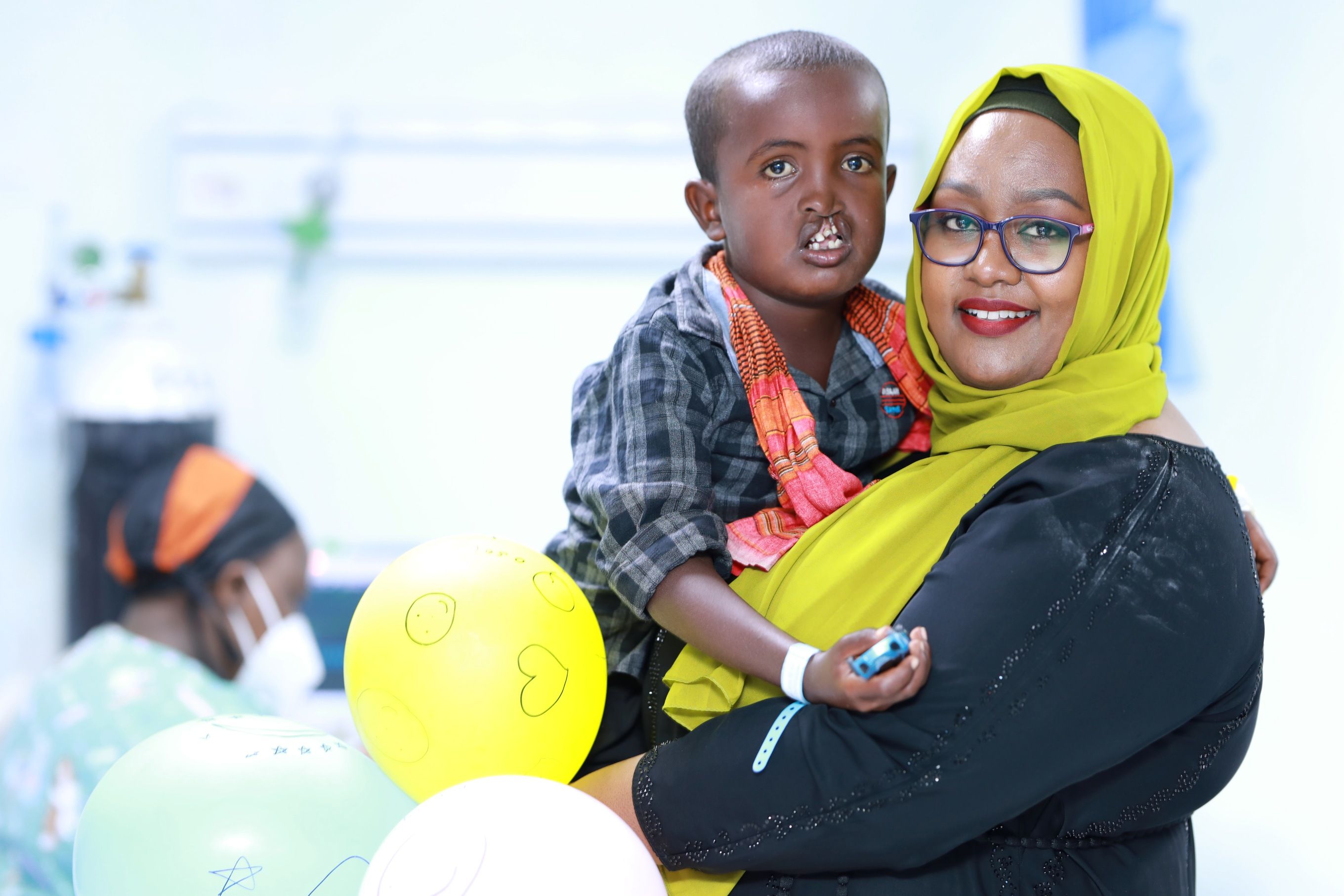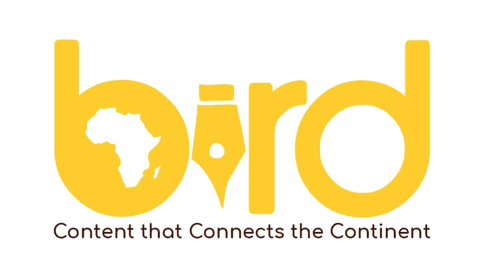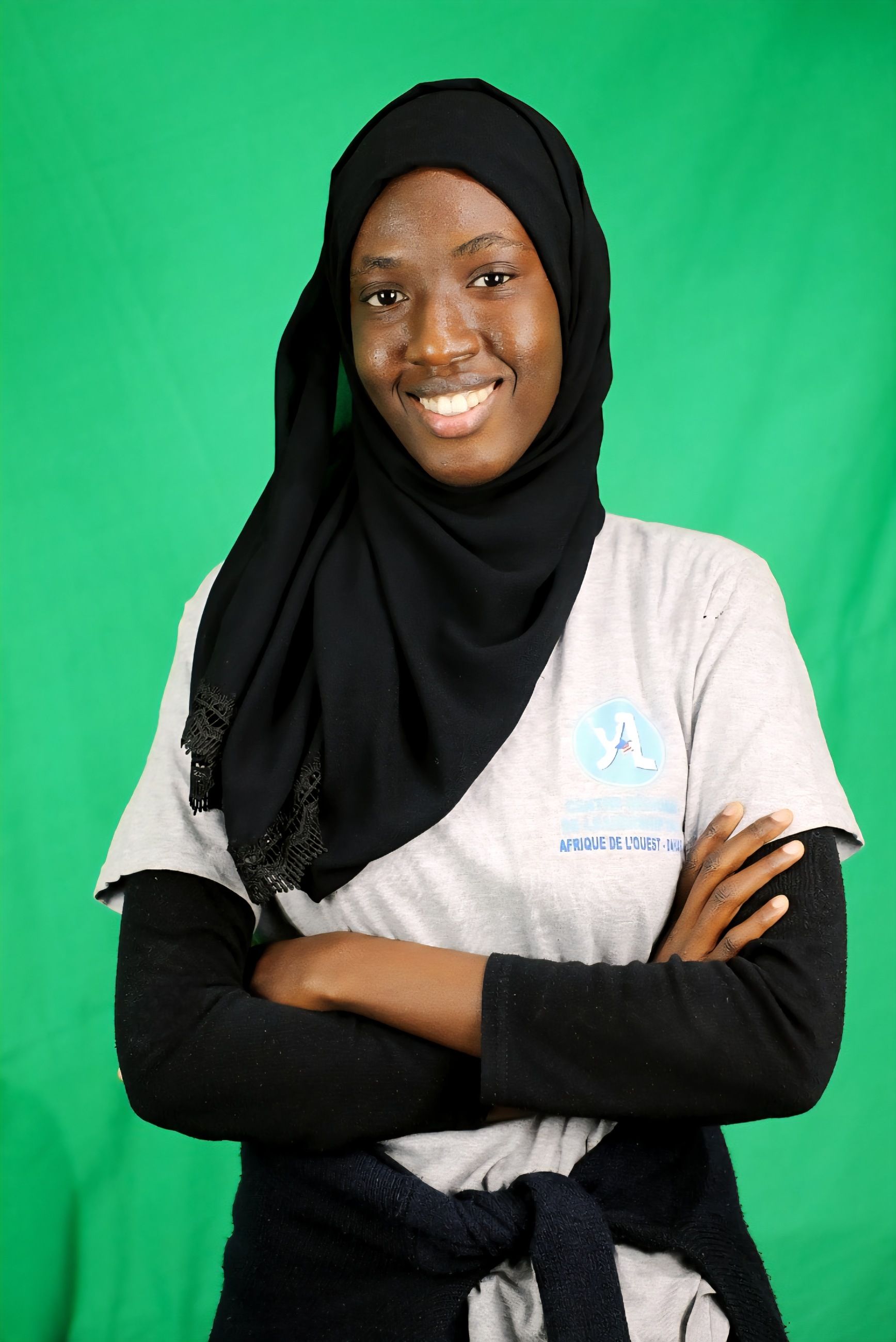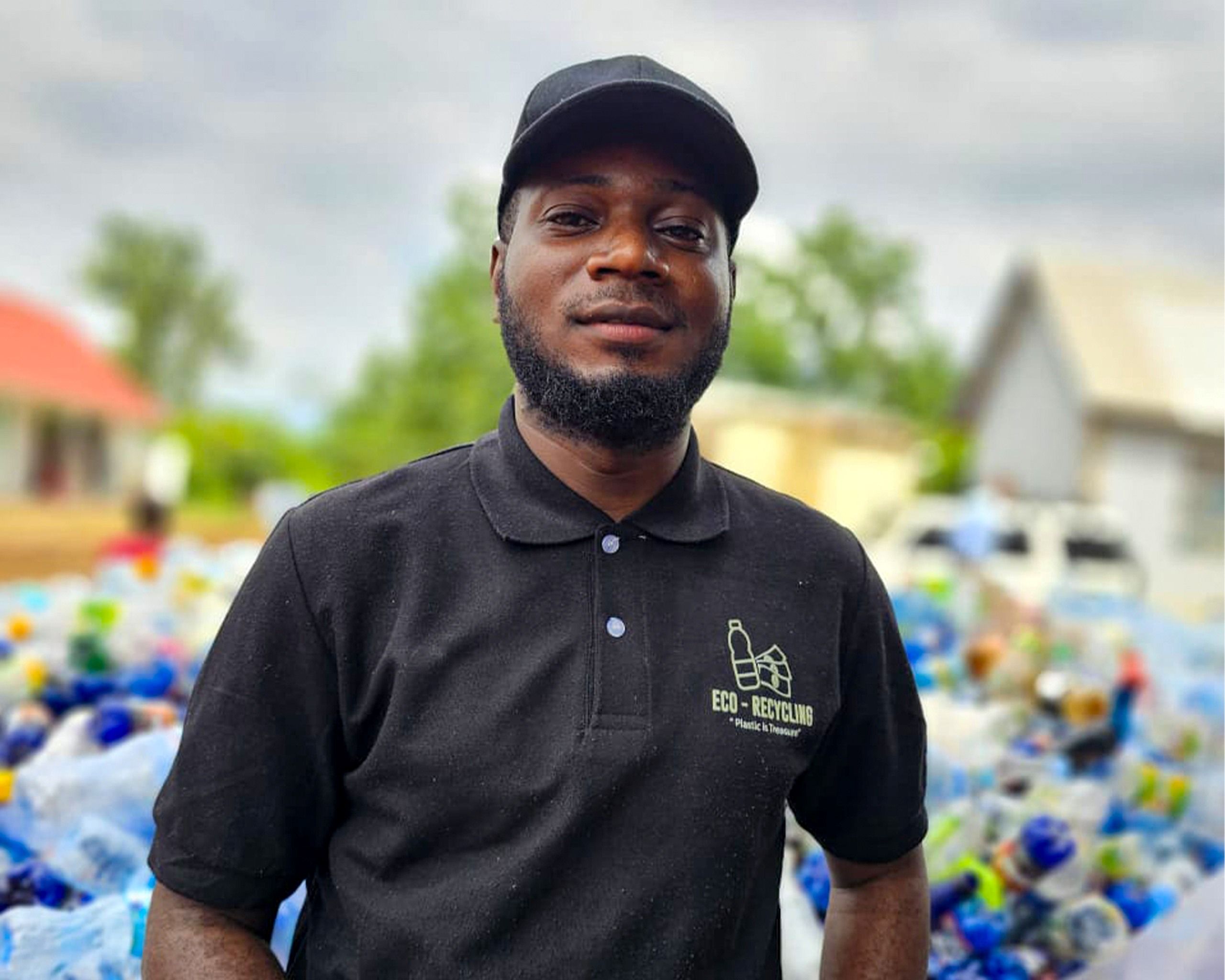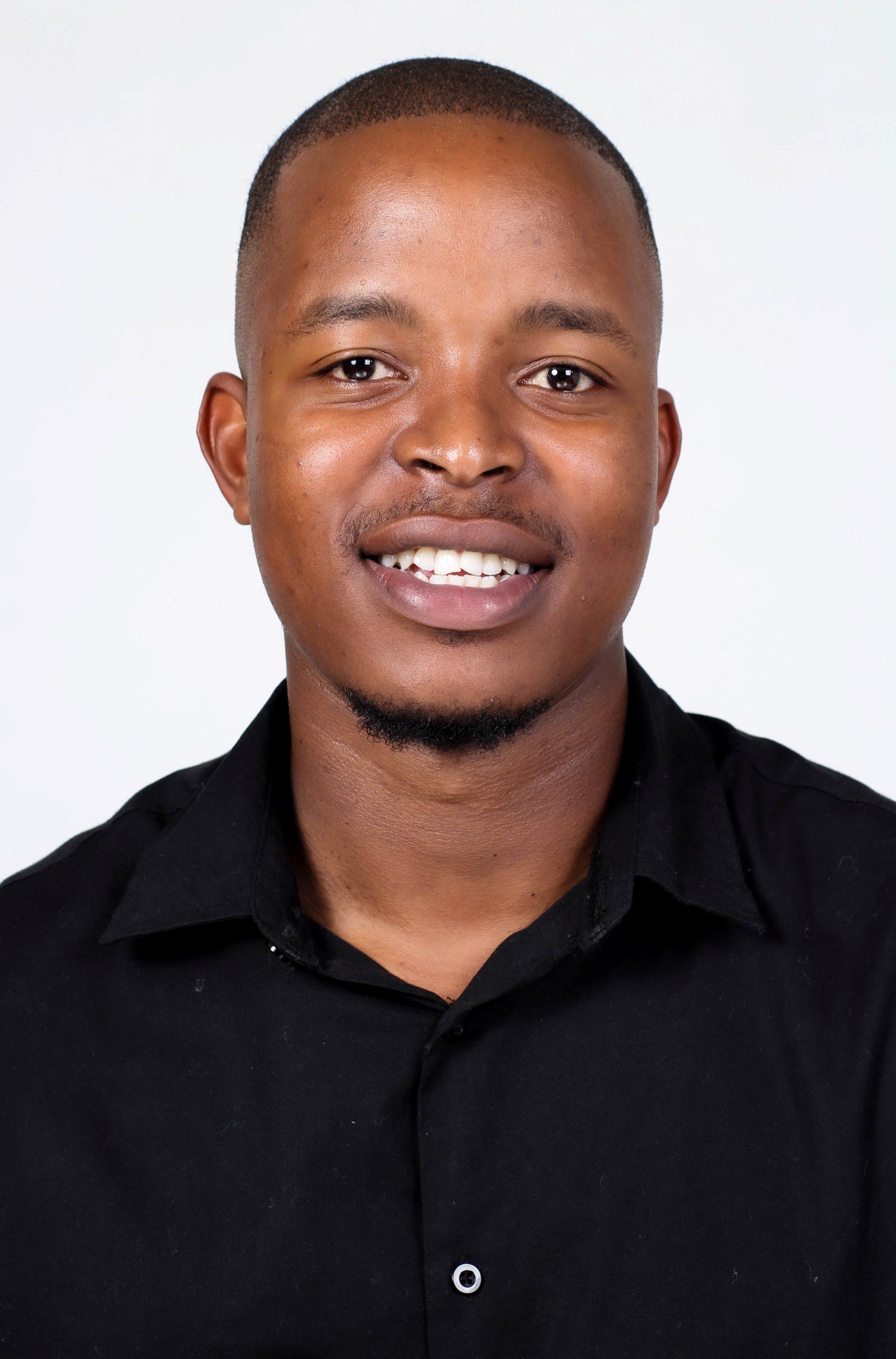Sesnie Zemichael fled conflict in Ethiopia and rebuilt her life in Nairobi, where she co-founded the Bela Risu Foundation. With a background in marketing and business administration, she currently runs one of the only medical centres in East and Central Africa that provides free, comprehensive cleft lip therapy.

Velma Pamela, bird story agency
44-year-old Sesnie Zemichael was not meant to be in Nairobi, at least not in the way that she arrived.
Conflict in her homeland brought her to Kenya in 2020. When civil war broke out in Ethiopia's Tigray region, Sesnie, who is of Tigrayan descent, was forced to flee the nation for safety. The turmoil disrupted her career in public health.
“It was a very unpleasant, sudden exit,” she says. “I had to leave my position, my home, and a network I had spent years building.”
But she turned her situation around and rebuilt her life—in Nairobi.
The city gave her a fresh start. She adapted and evolved her career. Eventually, she co-founded a healthcare facility that today provides free, life-changing therapy to some of East and Central Africa's most underserved people: those with cleft lip.
Every year, approximately 32,000 babies in Africa are born with cleft lip and/or palate, but less than half receive the necessary surgery and follow-up care.
According to a 2025 systematic review, mortality rates for infants born with cleft lip and palate in low-income countries can reach 19.8%, with a median of 10.2%. Newborns are most vulnerable, particularly when care is delayed or other problems exist. In Sub-Saharan Africa, children with clefts are twice as likely to be malnourished, a primary cause driving premature deaths.
Sesnie, raised in Addis Ababa, Ethiopia, has an academic background in marketing and business administration. However, her career path swiftly switched to humanitarian and development work. She has previously worked with leading global organisations, including the Foreign, Commonwealth and Development Office (FCDO) (formerly DFID), the World Bank, Save the Children, and Irish Aid, as well as in the private sector and social enterprise.
One such venture, dedicated to empowering people with disabilities in Ethiopia, is what ignited her enduring commitment to community-centred care.
She was introduced to cleft lip care in 2015, when she accepted a role at Smile Train, the world’s largest cleft-focused nonprofit, delivering free surgery and comprehensive care to children across more than 70 countries.
“I had no idea what a cleft was. I had never seen one,” she admits.
From 2015 to 2020, Sesnie was Smile Train's senior regional program manager, leading cleft projects in eight countries, from Somalia and Ethiopia to Malawi and South Sudan.
Dr Martin Kamau, an oral and maxillofacial surgeon with extensive experience in cleft surgery and medical training, and Paul Kimani, a healthcare operations specialist, co-founded the Bela Risu Foundation. The concept was developed in 2013 and officially launched in 2017.
Sesnie joined Bela Risu as senior director of programs and partnerships with a focus in global health and development sectors, she brought with her a vision for more sustainable long-term care. Her ambition was to establish a permanent Bela Risu Medical Centre in Nairobi, combining surgery, nutritional support, speech therapy, orthodontics, psychosocial care, and training for local health professionals to ensure continuity and sustainability.
The centre now provides full, interdisciplinary care, including speech therapy, nutrition, ENT services, orthodontics, and psychiatric support.
“We realised very quickly that cleft isn’t just surgical; it’s a journey that involves nutrition, speech, dental care, and emotional support,” Sesnie said.
The organisation quickly grew into one of the few dedicated cleft facilities in Sub-Saharan Africa, providing complete treatment inside and outside the operating room.
“The name Bela Risu comes from Latin,” Sesnie said. “'Bela' means beautiful, and 'Risu' means smile. We wanted it to reflect what we aim to restore.”

Kimani recalled the moment that paved the way for the Bela Risu Foundation to expand its mission from conducting occasional surgeries to delivering year-round, integrated cleft care across the region.
At 25, while assisting with a surgical outreach program, he encountered a 45-year-old man who had a complete cleft lip and palate, conditions he had had his entire life.
“Children used to be scared of him,” Kimani recalled. “He was considered the 'monster' of the village.”
The father had come to the hospital with his son, who served as his translator because his cleft palate had rendered his speech practically incomprehensible. After his surgery, everything changed. The man told him that he could now go to the market, sell his animals, and buy things on his own, without the need for his son to guide him. That moment, watching someone's life change in just an hour, made an indelible impression.
Many parts of the continent still lack specialised cleft care. Kimani explains that cleft surgery requires either maxillofacial or plastic surgeons, both of whom are in short supply and frequently inaccessible in remote or underprivileged locations.
“Most cleft patients come from poor backgrounds, and not many surgeons want to focus on surgeries that don’t generate income,” he said.
What results is a rising backlog of untreated patients, many of whom go years, if not decades, without receiving care.
Cleft lip and palate conditions are misinterpreted in numerous communities and are often connected with curses, bad luck, or maternal misconduct. This stigma causes social isolation, educational discrimination, and severe psychological distress, not only for the kid but also for caregivers, particularly mothers.
It was at one of the Bela Risu supported outreach in Mogadishu that Nuur Adan Ali, a 30-year-old from Bosaso, Somalia, received life-changing surgery. He grew up hearing the word "faruro" muttered behind his back or shouted at him by children who only knew how to repeat what they heard at home. Nuur, who was born with a cleft lip and palate, learned to keep his head down from a young age. Over time, he came to accept this situation. But that didn't take away the hurt of rejection, especially as a young man looking for a wife. Every proposition was turned down.
Nuur's uncle overheard a radio advertisement about free cleft operations taking place in Mogadishu. They travelled for two days to get there. Nuur remained quiet for the majority of the ride, unsure of what to anticipate yet optimistic. The operation was successful. His uncle burst into tears after seeing his reflection.

Nuur just smiled. "Now I have four marriage proposals," he informed.
Sesnie is a key contributor to its leadership and success of Bela Risu. Her presence as a female leader provides a unique perspective in the male-dominated medical and development industries.
“I bring a different set of skills: empathy, resilience, and a deep understanding of the communities we serve,” she reflects.
A shortage of qualified cleft lip experts throughout Africa greatly hampers access. In some nations, there may be just one or two reconstructive surgeons per million inhabitants, with most concentrated in capital cities.
Furthermore, therapies such as speech therapy, orthodontics, and dietary counselling, all of which are required for complete recovery, are either unavailable or too costly for rural and displaced families.
In some of the countries where Bela Risu operates, particularly in the Horn of Africa, cultural traditions made it difficult for Sesnie to be seen as a leader. She describes instances in which local officials failed to make eye contact or even answer her questions directly.
“I had to carry a colleague who is a man to just accompany me to this meeting so that it makes it easier for them to talk,” she explained. ”There was an incident once where I was asking the question, but they were responding to my male colleague.”
The experience felt unusual at first, but she eventually realised it was deeply rooted in cultural norms. Sesnie adapted after realising she might have unwittingly violated local customs, such as the dress code. Since then, she claims, genuine communication has been possible, but the lesson remains: being culturally respectful as a woman leader can be just as important as being competent.
Bela Risu's work now extends across many African countries, partnering with local hospitals and ministries of health to provide care in remote places. In Somalia, they collaborate with hospitals in Mogadishu and Bosaso; in South Sudan, they execute outreach trips despite security and infrastructure obstacles. The foundation has also financed training programs for cleft surgeons and anesthesiologists in Rwanda and Zambia, thereby contributing to the development of a pipeline of local competence in areas where global resources are typically limited.
Bela Risu has performed over 8,000 free cleft operations in nations including Kenya, Somalia, South Sudan, Angola, and Bangladesh. Their methodology emphasises local solutions to local problems, with African surgeons, nurses, and volunteers working on the ground to help their communities.
Despite the remarkable progress Bela Risu has made, challenges remain. Funding is an ongoing challenge. Because all services are free, the organisation is highly reliant on donations and volunteer assistance.
“We do such impactful work, yet few people know about it,” she says, noting the high cost of media outreach and advertising in Africa.
Another challenge is finding patients. Without national cleft registries or birth defect reporting systems, families frequently hide children born with clefts due to social stigma. Bela Risu's outreach teams must travel significantly to locate and serve these patients.
According to a 2019 poll conducted in Nigeria, 64% of families assumed their child's cleft was a punishment, and more than half put off seeking care due to shame or fear of discrimination. Bela Risu's outreach teams use medical intervention and community sensitisation to shift these harmful narratives.
Dr Justina Liliana Lucy Geraldine Najjuka, a pioneering Ugandan ENT and plastic surgeon, has led cleft care initiatives across East and Central Africa, doing over 6,000 procedures at Smile Train's surgical facility in Mbarara, Uganda. In a 2022 interview with Smile Train UK, she emphasised the need of early, comprehensive treatment, clarifying, "When children receive early surgery and follow-up care, they can go on to live completely normal lives—eating, speaking, and smiling with confidence."

Separate from her personal experience, Sesnie is dedicated to mentoring other women in healthcare, including encouraging Ethiopia's only two pediatric anesthesiologists, one of whom joined the field thanks to her support.
“One of them, Dr Tirunesh Busha, is someone that I encouraged, and she’s now a full pediatric anaesthesia specialist in Ethiopia,” she said. “So, I feel proud that I was able to encourage her and support her to get into that program, and now she can serve the community in that leadership space.”
Sesnie envisions a future in which cleft care is completely incorporated into national health systems. She hopes to establish a referral pipeline from hospitals to Bela Risu, as well as a sustainable finance mechanism.
“In the next five years, we will have a sustainable model where we don’t have to interrupt our services to look for money.”
Sesnie’s journey from displacement to rebuilding, from learning cleft care to reforming it, exemplifies a quiet defiance against systems that fail the most vulnerable. Bela Risu is not merely filling a healthcare gap; she is reimagining what care might be when equity, resilience, and lived experience are at the forefront. Her narrative serves as a reminder that long-term transformation begins with the determination to start over, and to draw others along.
bird story agency

